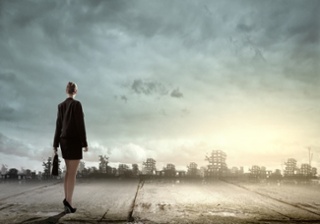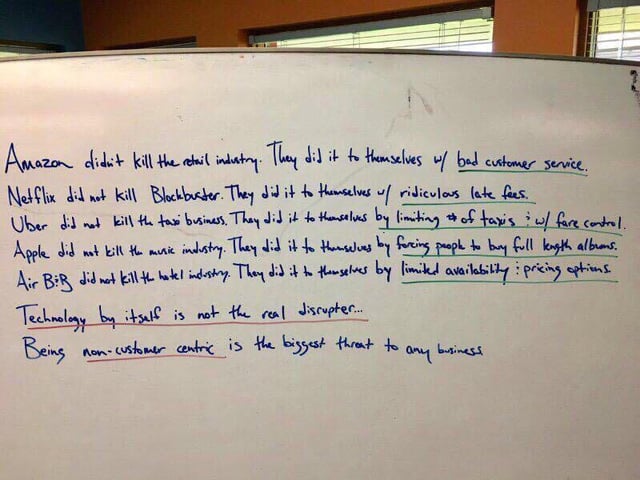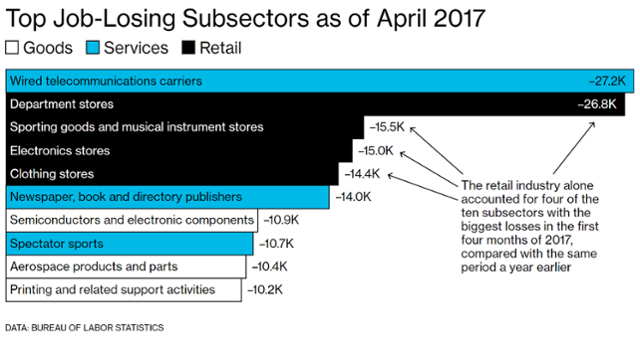 I am an avid follower of the social media posts from Suzanne Lucas (also more famously known as The Evil HR Lady).
I am an avid follower of the social media posts from Suzanne Lucas (also more famously known as The Evil HR Lady).
Last week I saw an interesting post that she shared that showed a whiteboard summary on how poor customer service may have made businesses vulnerable to disruption.

Amazon didn't kill the retail industry. They did it to themselves w/bad customer service.
Netflix did not kill Blockbuster. They did it to themselves w/ridiculous late fees.
Uber did not kill the taxi business. They did it to themselves by limiting # of taxis & w/fare control.
Apple did not kill the music industry. They did it to themselves by forcing people to buy the full album.
Airbnb did not kill the hotel industry. They did it to themselves by limited availability & pricing options.
I am not entirely sure where the image came from but I did read some interesting commentary from Dr. Serhan Ili added an important point that technology by itself is not the real disrupter. Instead, being non-customer centric is the biggest threat to any business.
The saddest part of this list is the personal impact that this disruption has had on the careers of the employees who worked for the organizations that were on the wrong end of the change. They are caught up in the resulting layoffs that take place as their organziations scramble to adjust (most often too late).
A good example is the retail industry. I previously wrote how there have been almost 27,000 jobs lost so far in 2017. These are decent people for the most part who were not doing anything wrong despite the simplistic analysis that Amazon captured the business because of a superior customer experience.

The same can be true with the employees at Blockbuster. They had no say in setting late fees or the stocking policy that never seemed to have enough of the hot best sellers in continual stock. For the most part, the employees that were impacted by the closure of Blockbuster were decent people doing their job the best that they could. They were not part of the corporate strategy or involved in the decision-making process that eventually made their jobs disappear.
This does provide us all with a cautionary tale that our careers can be impacted if we select to remain in legacy businesses that can be disruption targets. I can speak about this first hand having had career stops in the paper industry (now in slow decline due to the move digital storage) and office furniture industry (now being battered as we move to work from home and co-working office solutions).
![]()



